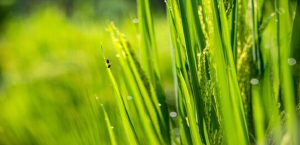Abstract:
Ectomycorrhizal fungi (ECM) sustain nutrient recycling in most terrestrial ecosystems, yet we know little about what major biogeographical events gave rise to present-day diversity and distribution patterns. Given the strict relationship between some ECM lineages and their hosts, geographically well-sampled phylogenies are central to understanding major evolutionary processes of fungal biodiversity patterns. Here, we focus on Amanita sect. Vaginatae to address global diversity and distribution patterns. Ancestral-state-reconstruction based on a 4-gene timetree with over 200 species supports an African origin between the late Paleocene and the early Eocene (ca. 56 Ma). Major biogeographic “out-of-Africa” events include multiple dispersal events to Southeast Asia (ca. 45‒21 Ma), Madagascar (ca. 18 Ma), and the current Amazonian basin (ca. 45‒36 Ma), the last two likely trans-oceanic. Later events originating in Southeast Asia involve Nearctic dispersal to North America (ca. 20‒5 Ma), Oceania (Australia and New Zealand; ca. 15 Ma), and Europe (ca. 10‒5 Ma). Subsequent dispersals were also inferred from Southeast Asia to East Asia (ca. 4 Ma); from North America to East Asia (ca. 11–8 Ma), Southeast Asia (ca. 19–2 Ma), Northern Andes (ca. 15 Ma), and Europe (ca. 15–2 Ma), respectively; and from the Amazon to the Caribbean region (ca. 25–20 Ma). Finally, we detected a significant increase in the net diversification rates in the branch leading to most northern temperate species in addition to higher state-dependent diversification rates in temperate lineages, consistent with previous findings. These results suggest that species of sect. Vaginatae likely have higher dispersal ability and higher adaptability to new environments, in particular compared to those of its sister clade, sect. Caesareae. Overall, the much wider distribution of A. sect. Vaginatae, from pan-tropical to pan-arctic, provides a unique window to understanding niche conservatism across a species-rich clade of ECM fungi.
Speaker: Jean Evans I. CODJIA
Affiliation: University of Parakou
Time: 4:30 PM, Tuesday, Jul. 12, 2022
Venue: ZOOM 会议平台 会议 ID:312 430 8960 会议密码 PWD:666666
视频下载Download Link链接: https://pan.baidu.com/s/1PUvXhQG88Wy3AXLmPXRg2w Pwd提取码: darj
ZOOM
会议 ID:312 430 8960
会议密码 PWD:666666
国内用户下载地址Download address for domestic users:https://zhumu.com/download
国际用户下载地址Download address for international users:https://zhumu.com/download-intl



